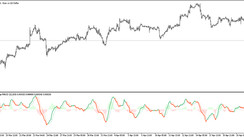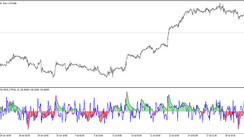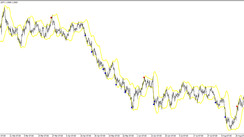Experts from our company have compiled a ranking of five books, which they recommend not only to beginners in trading.
For traders who first think and then place orders.
Reading on business starts to be monotonous in a way. People are deluged with celebratory stories intended to inspire them to succeed. This applies twice as much to capital market trading. Advertisements featuring stories about those who miraculously got rich are targeting us from all directions. However, all that glitters is not gold.
Experts of our investment company, Goldenburg Group, have prepared a ranking of top five books they recommend to novice traders as well as to all of those who consider themselves to be successful on the market. Success is fragile and as the growing volatility shows, financial success is increasingly transitory.
It is thus appropriate not only to monitor and analyse the steps of successful people but also to focus on the dark side of investing and trading. We recommend that you concentrate on three principles: understand the tools, understand the risks and use common sense.
In our selection of books, you will find not only inspiring stories but also understandable aids and principles to avoid elementary mistakes and apply a prudent and tactical approach on your path to success.
TOP 5 books on trading
1. Mastering the Trade by John Carter
In our opinion, this is one of the best books on trading providing essential information to beginners while substantially enriching experienced traders on traditional and modern capital markets.
The book provides a crystal-clear explanation of complex trading mechanisms, looks beneath the surface of allegedly reliable strategies to get rich and gives valuable critical feedback to any trader.
Psychology of a trader is the most impressive feature of the Carter’s book, which elaborates both on long-term investment strategies and short-term day trading.
Although the sound foundation of Mastering the Trade was laid by the explanation of natural market relations, the book is primarily a practical guide written by an expert who spent several years in many dealing departments.
While advanced traders will appreciate namely the sophisticated explanations of analytical procedures, the section on risk management techniques to protect capital should be a standard for everyone.
2. Trade Like a Pro: 15 High-Profit Trading Strategies Noble DraKoln
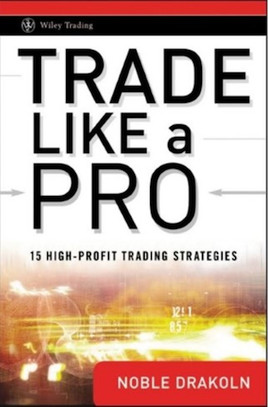
Again, the best quality of our number two is its focus on risk control issues and options.
The book contains a comprehensive introduction to all basic trading strategies that any trader should be equipped with. The author does not force a single approach upon readers but shows the pros and cons of any relevant strategy that is appropriately discussed and explained.
Noble DraKoln provides a convincing story where an unsuccessful retail trader transforms into a professional, controlling his capital through a sophisticated approach.
3. How to Day Trade for a Living Andrew Aziz
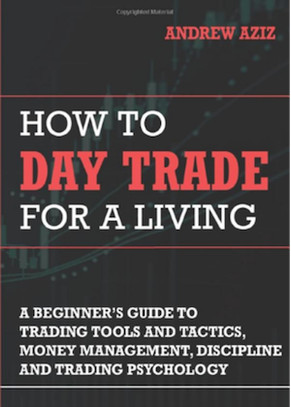
Why an experienced professional should not look back at his career, run over his achievements and failures, and ask himself what the lesson learnt was? Although it is just a beginner’s guide to trading tools and strategies, Andrew Aziz mastered the genre superbly.
The author shares his story on how, with a bit of luck, he earned his first 6,000 dollars within several minutes. And how he lost them subsequently. He illustrates that this is what happens to any trader lacking discipline and appropriate risk management.
It is like a dream. As a day trader, you can live and work anywhere all over the world. You can decide when to work and when not to work. You are responsible to yourself only. This is the life of a successful trader. Many people seek to have it but very few succeed. Why? You will find out in the book that won our bronze medal.
4. High Probability Trading: Take the Steps to Become a Successful Trader Marcel Link
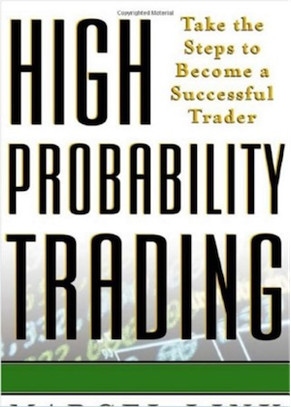
As stated in the book description, a common denominator among most new traders is that, within six months of launching their new pursuit, they are out of money.
High-Probability Trading is a manual with a comprehensive programme for weathering the perilous first months and becoming a profitable trader using the favourite method of trial and error.
Link’s book is stuffed full of reality. We appreciate examples from the trader’s real life and the book’s usability for both day traders and long-term investors as the author explores all aspects of risk and success in capital market trading.
5. The Disciplined Trader Mark Douglas
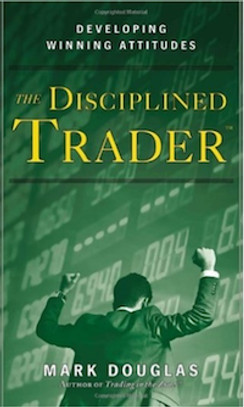
Of course, markets change with new financial tools as well as technologies and applications. Exchanges of the entire world are now squeezed into any trader’s mobile phone.
However, certain principles and trading rules remain the same and should be repeated as a mantra.
The Disciplined Trader written by Mark Douglas in 1990 deals with trading psychology, mental discipline necessary for a trader not to end up on the street with no capital.
We consider this classical book a must-read not only for beginners. Although the author looks into a topic that may seem to be depressingly complex, this text is well-structured, reads well and provides unbelievably honest information on the trader’s profession.
Disclaimer: The content of the Reports constitutes Marketing Communication and does not constitute Investment Advice or Investment Research or an offer for any transactions in financial instrument. The content of the Reports represents the view of our experts on a generic basis, and does not take into consideration individual readers personal circumstances, investment experience or current financial situation. In addition, the Reports have not been prepared in accordance with legal requirements designed to promote the independence of Investment Research, and are not subject to any prohibition on dealing ahead of the dissemination of Investment Research. Readers using the Reports should consider the possibility of encountering substantial losses. The past performance is not a guarantee of future results. Therefore, Goldenburg Group Limited shall not accept any responsibility for any losses of traders due to the use and the content of its Reports.


